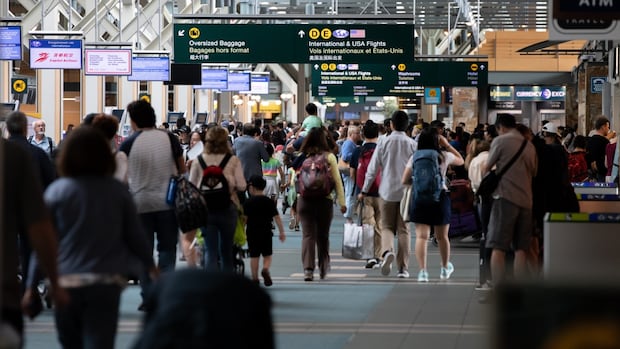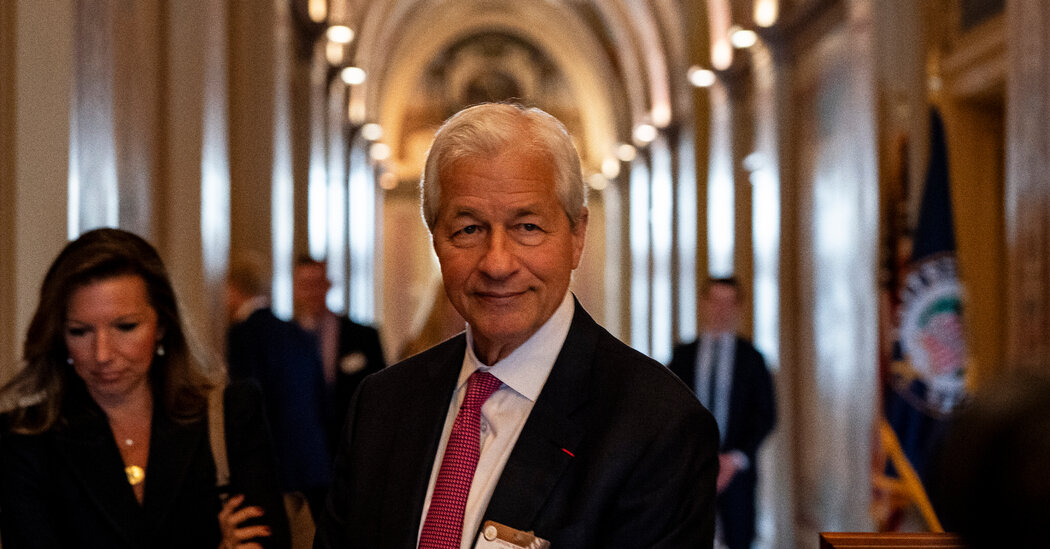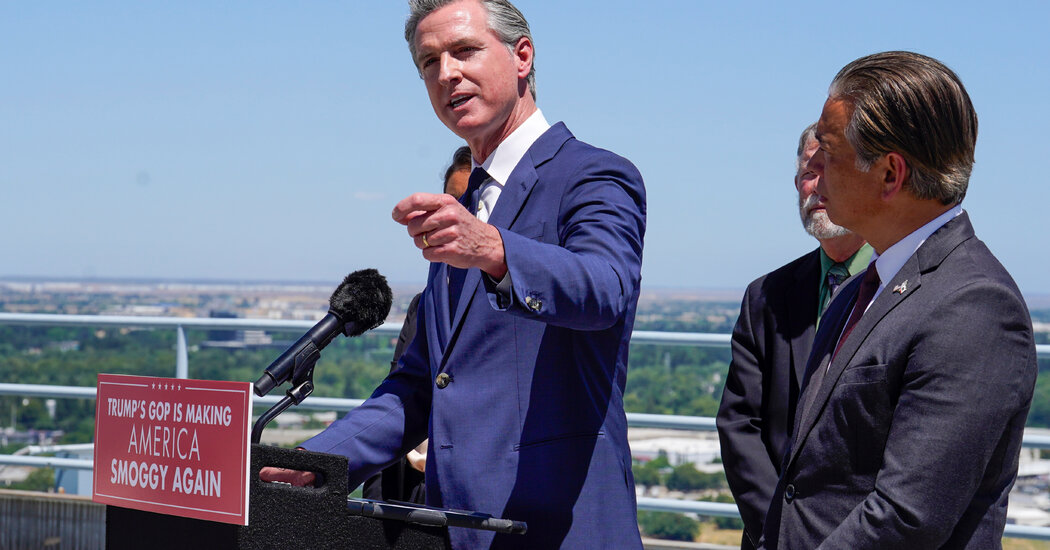More than 200 flights were delayed at Vancouver’s airport between Saturday and Sunday, with the airport authority attributing the delays to ongoing staffing constraints at Canada’s air traffic control agency.
Nav Canada has been seeing ongoing issues for months, with a shortage of air traffic controllers at Vancouver International Airport (YVR) in particular regularly causing delays.
With more than 425,000 passengers expected to transit through YVR in the lead up to Canada Day, Monday is expected to be the busiest travel day of the four-day stretch.
Nav Canada said it’s doing its best to add flight capacity where possible, and that its goal is always to minimize the impact on passengers.

“We know that any delay, regardless of the duration, can be impactful to Canadians and travellers,” a spokesperson wrote in an email. “We always encourage passengers to check the status of their flight with their airlines.”
A YVR spokesperson said that 186 flights were delayed on Saturday and, as of 11:20 a.m. PT on Sunday, 24 flights were reporting delays.
“As delays are a result of staffing constraints at [Nav Canada], we cannot speak to whether impacts will persist over the coming days,” the spokesperson said.
Stephen Smart, the airport’s head of communications, told CBC News on Sunday that at one point on Saturday, the average delay on a flight was two hours.
Normally about 36 planes an hour can land at YVR, but at one point on Saturday that fell to 16, Smart said.
More than 88,000 passengers are expected to transit through YVR on Monday, according to the airport authority.

YVR directly attributed the delays to Nav Canada.
But Nav Canada said air traffic delays are rarely the fault of a single organization.
“Air traffic delays can occur for a range of reasons — weather being the most frequent, but also runway construction, infrastructure maintenance, surges in demand, and personnel resourcing,” Nav Canada wrote in a statement.
“Airports, airlines, baggage handling, security screening services, and [Nav Canada] all play a part in the broader aviation system.”
In response to a question from CBC News about whether the agency could have better foreseen the long weekend travel demand, Nav Canada spokesperson Jonathan Bagg said they were actively working to optimize their scheduling.
“We do plan to make sure we can have enough people, but sometimes you have unforeseen circumstances, and in those cases we do everything we can to respond,” he said in an interview with CBC News.
Ongoing staffing crunch
The staffing crunch at Nav Canada has been an issue for months at Canada’s largest airports.
In May, an Air Canada pilot vented his frustrations over air traffic controller shortages to passengers on a Vancouver-Montreal flight, urging passengers to write their MPs to address the delays.
Nav Canada is a private non-profit company that is funded by contributions from airlines, and oversees air traffic control across the country.
Air Canada says it’s been hit by unexpected delays at Vancouver International Airport in recent weeks. The airport confirms a shortage of air traffic controllers has caused delays and cancellations. As Jon Hernandez reports, a pilot expressed his frustrations to a plane full of passengers on Saturday.
In its statement, the Nav Canada spokesperson said that it’s stepping up efforts to train new air traffic controllers.
“Since September 2023, more than 450 air traffic services professionals received qualification, including approximately 230 air traffic controllers, and there are more than 500 individuals in our air traffic services training programs across the country at this time,” they wrote.
“However, the path to full qualification is extensive, typically requiring 24 to 36 months of classroom instruction, simulation, and on-the-job training.”




